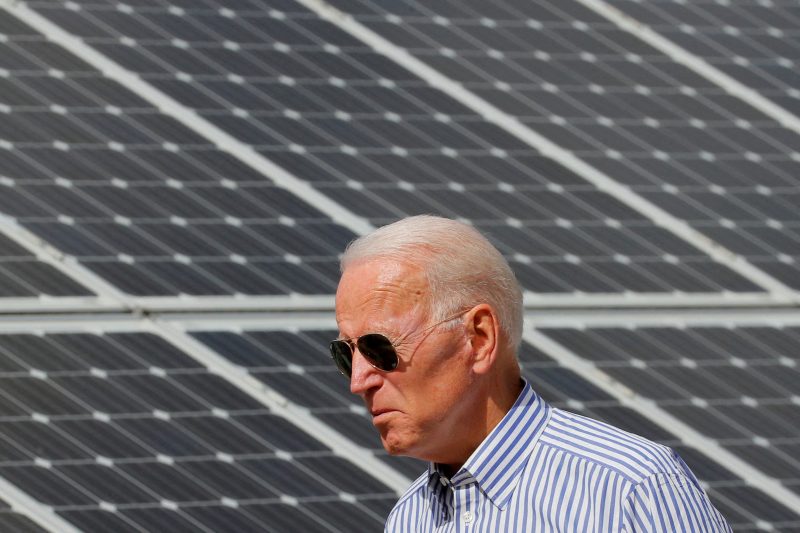President Biden vetoed a resolution that would have restored tariffs on solar panels imported from certain Southeast Asian countries, saying that the resolution would undermine his administration’s efforts to create a strong domestic solar supply chain.
The resolution, which passed the House and Senate in bipartisan votes, would have undone a Department of Commerce rule that suspended tariffs on solar panels imported from Cambodia, Malaysia, Thailand and Vietnam. The rule went into effect in November, after Biden in June had ordered tariffs on solar panels from those Southeast Asian countries waived for two years.
The tariff waiver was intended to address a shortage of solar modules, which was threatening American solar projects, while allowing the United States to build its domestic solar manufacturing capacity. About three-quarters of solar modules imported to the United States in 2020 came from Southeast Asia, the White House said last year.
In his veto letter Tuesday, Biden said his administration’s plan was working, noting that 51 new and expanded solar equipment manufacturing plants had been announced since he took office, and that several other private companies had committed to increasing their solar panel manufacturing capacity.
“America is now on track to increase domestic solar panel manufacturing capacity eightfold by the end of my first term,” Biden wrote. “But that production will not come online overnight. The Department of Commerce’s rule supports American businesses and workers in the solar industry and helps provide sufficient, clean, and reliable electricity to American families, while continuing to hold our trading partners accountable.”
Biden also said that he did not intend to extend the Department of Commerce rule after it is set to expire in June 2024.
The House passed the resolution last month in a 221-202 vote, with 12 Democrats and most Republicans voting in favor of it. The Senate passed the resolution earlier this month in a 56-41 vote, with nine Democrats joining all Republicans except Sen. Rand Paul (R-Ky.) to support it. The resolution was passed under the Congressional Review Act, which allows Congress to overturn rules by federal agencies via a simple majority vote.
The Solar Energy Industries Association, which represents more than 1,000 solar companies, immediately urged Biden to veto the resolution after Congress passed it, and on Tuesday praised Biden’s action.
“President Biden’s veto has helped preserve our nation’s clean energy progress and prevented a bill from becoming law that would have eliminated 30,000 American jobs, including 4,000 solar manufacturing jobs,” SEIA president Abigail Ross Hopper said in a statement. “This action is a reaffirmation of the administration’s commitment to business certainty in the clean energy sector, and a signal to companies to continue creating jobs, building domestic manufacturing capacity and investing in American communities.”
Republicans and Democrats who supported the resolution argued that China should be punished for circumventing tariffs by shipping their products through Cambodia, Malaysia, Thailand and Vietnam, according to a preliminary finding in a Commerce Department investigation.
Ultimately, Biden argued that the resolution would harm the development of the solar industry in the United States.
“Passage of this resolution bets against American innovation,” Biden wrote in his veto letter. “It would undermine these efforts and create deep uncertainty for American businesses and workers in the solar industry. Therefore, I am vetoing this resolution.”
Maxine Joselow contributed to this report.
